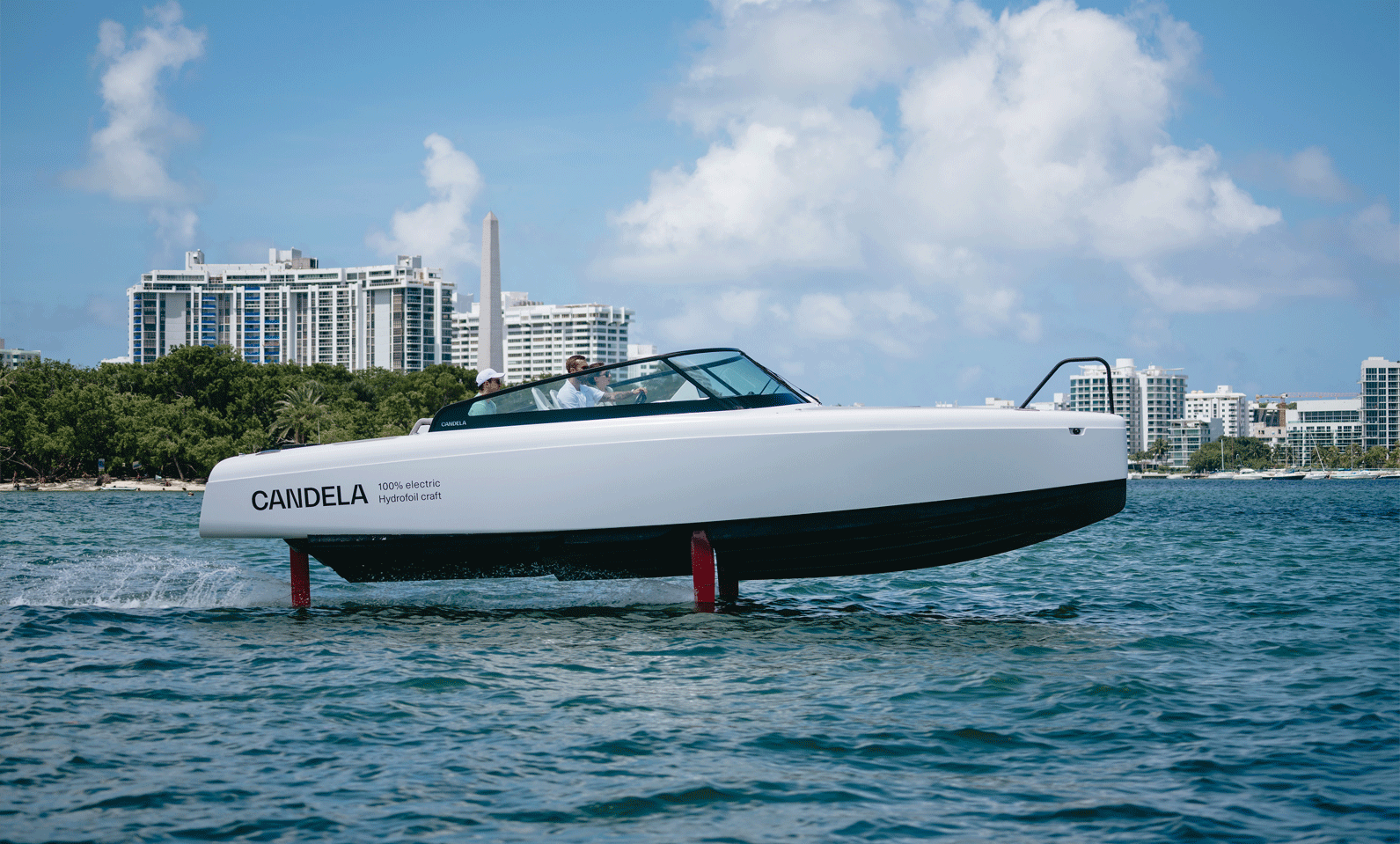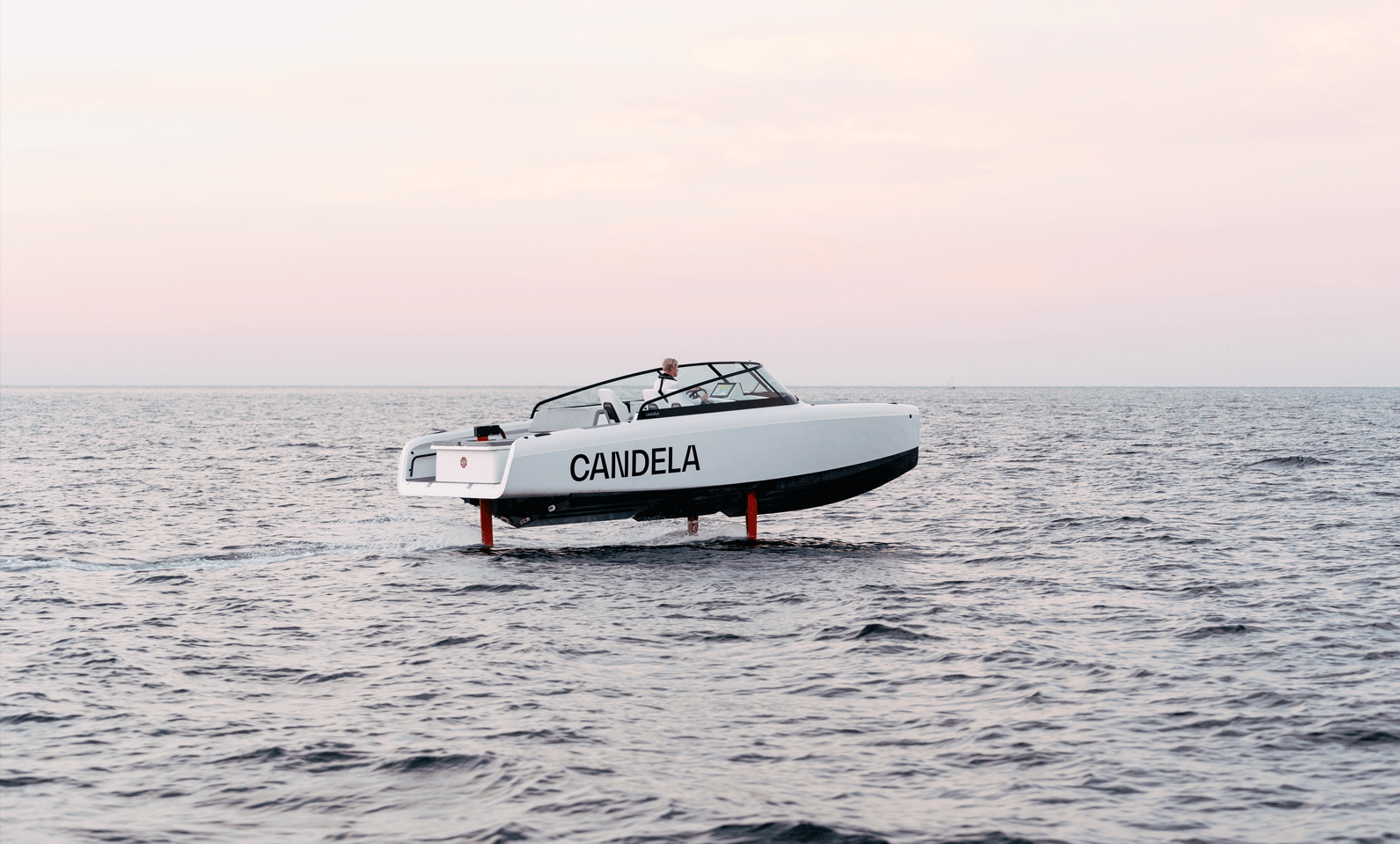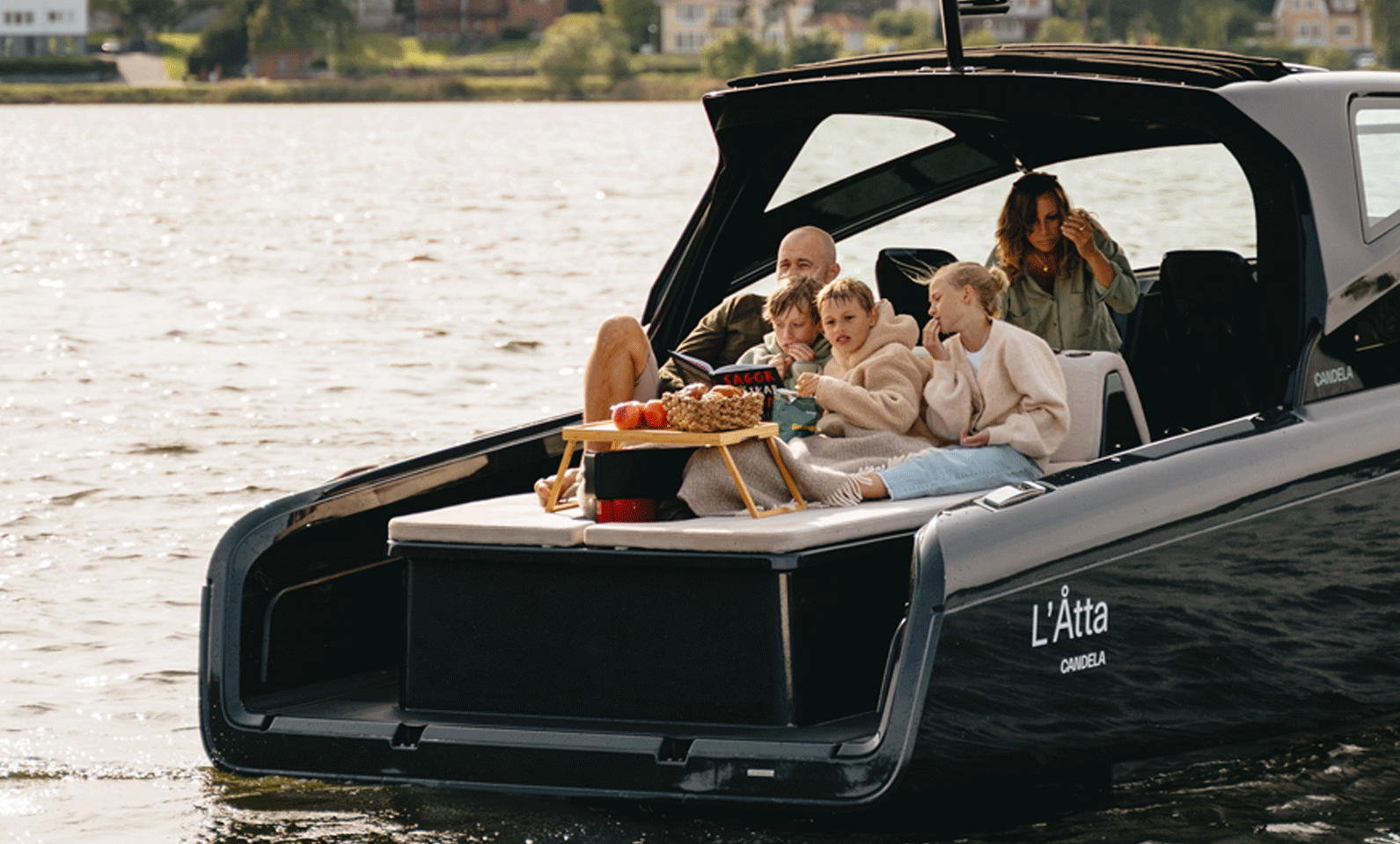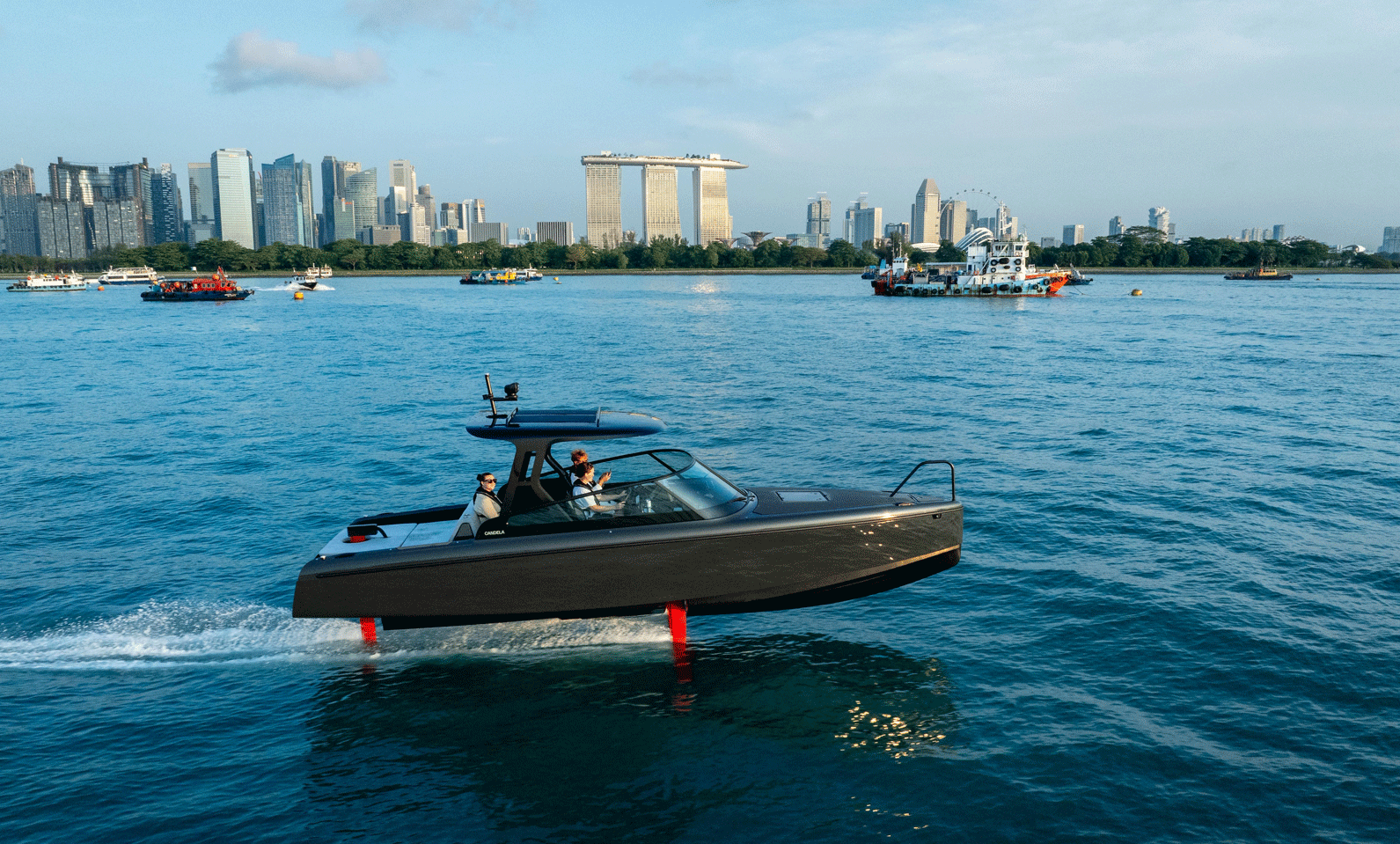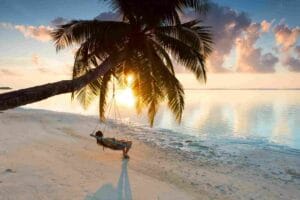About Candela
Founded in 2014 by Gustav Hasselskog after realizing that fast boats are one of the most inefficient modes of transport. While calculating the fuel costs for his 25-foot day cruiser in the Stockholm archipelago, he discovered that it consumed 15 times more fuel than his car.
Gustav’s vision was to utilize a century-old invention—hydrofoils, wings beneath the water that reduce friction and energy consumption—combined with modern lithium- ion batteries and a digital flight control system to create an electric boat with long range, speed, and a far more comfortable ride than traditional fossil-fuel boats.
Not an easy feat, however by the end of 2016, his small team had launched a full- scale prototype which could reach 50 nautical miles per charge at a speed of 22 knots. Production of the C-7, the world’s first electric hydrofoil boat started in 2019 and in 2020, Candela C -7 had become the best-selling electric boat in Europe.
Technology and Growth
Development of hydrofoil dynamics, build specifications and electronic tech for both hardware and software advancements required innovations and significant investments, which led to Candela submitting over 20 patents resulting in a tech trio of hydrofoil technology, propulsion system and the digital flight controller.
Combined, there is up to an 80% energy reduction when compared to conventional boats as the electric propulsion and hydrofoils increase efficiency and speed by drastically reducing water drag. In addition, the tech allows for a much smoother, quieter ride, and as the vessel is fully connected, remote monitoring, fleet management optimisation and predictive maintenance scheduling.
With the exception of the batteries, all the other boat components are designed, developed and built by Candela. Utilising their 10 years of experience coupled with data captured by the fleet of 100 recreational boats currently in operation, Candela’s second generation boats, the C-8, a 8 meter recreational craft, and P-12, a commercial passenger ferry, are also available.
At the design stage, Candela involved DNV, a compliance management body, in all aspects of the development specifications. Consequently, every bolt and screw has been rigorously tested against strict governance standards.
The P-12 is already in operation in Stockholm and is gaining significant interest from countries taking proactive measures towards sustainable and environmentally friendly initiatives.
The Candela Electric Hydrofoil Boats have three key benefits: Environmental. Economic, and Passenger Experience. All of which play an important role within the Maldives.
Environmental Impact
Candela Electric Hydrofoil Boats have Zero emissions, Zero air pollution, Zero noise pollution and cause Zero water pollution, making them an attractive solution to the Maldivian environmental goal of becoming carbon natural by 2030.
Candela applied carbon footprint analysis to all segments of the build process. Built from carbon fibre, the craft is light, and the hydrofoils mean there is no wake, so no waves or shoreline disturbance, no noise, and with no oil, there is no risk of oil spills, leakages or emissions into the water that endanger marine life, resulting in a craft that has an overall low environmental impact – an LCA made by the KTH technical university of Stockholm concluded that a P-12 will emit 97,55 less co2 during its lifetime, compared to a similar-sized diesel ferry.
Economic
Savings in power and operational elements offset the higher initial capital outlay the high specifications warrant. To mitigate this, Candela provides an opex purchasing option which includes support for maintenance, servicing and spare parts.
Operationally, electric motors need less maintenance, with no schedule required, while a traditional boat’s outboards need servicing every few hundred hours. The C- POD motor is marine grade and there are very few exposed areas which prevents corrosion and costly maintenance. There are no special requirements for docking or charging stations, a normal DC car charger can be used, minimising investment.
Carbon fibre is much lighter than fibreglass, so the energy required to displace the water is less. Once the boat is on foils, then the energy reduction is 80% of traditional boats, coupled with increased range and speed over other electric options.
Even though the Maldives has some of the most expensive electricity in the world, there is still a cost saving which would be further increased using solar energy.
Passenger Experience
Boats have no noise and no fumes, allowing passengers to enjoy their surroundings in peace. Once up on foils, the boat flies above the waves, so there is no turbulence and no bumping, just a smooth relaxing experience inside an air-conditioned space.
Ease of loading at the front platform aids accessibility, benefiting passengers who have mobility or visual challenges to provide a more inclusive travel experience.
Fleet Capabilities
Overall, the boats have a range of 40 nautical miles on one charge at a cruising speed of 25 knots. Efficiency levels are the same whether gliding on the water at 6 knots or cruising on foils at 25 knots. On foils, the P-12 can fly over waves of up to 2 meters in height, and is light and easy to manoeuvre thanks to its two C-POD motors.
P – 12 Commercial Range
P-12 Shuttle – 100% electric hydrofoil with a capacity of 30 passengers
P-12 Voyager – fully customisable interiors to maximise comfort, enhance brand identity, and optimise the elegance of 5 * luxury. Capacity of 12 depending upon the interior configuration
P-12 Business – pollutant free private VIP shuttles in quiet comfort and elegance for 16 to 20 passengers.
Recreational Craft
C-8 – Merging advanced aircraft technology with innovative software and electronics, the C-8 is an 8 meter, 8 person sleek craft that has a top speed of 30 knots and a range of 57 nautical miles.
With 99% lower operational costs and retractable foils the craft can navigate shallow waters of 0.5 meters making it perfect for lagoons and sandbank excursions. It even has its own infotainment system to provide a more intuitive user experience.
C-7 A versatile, small and nimble craft, C-7 provides a quiet, smooth, comfortable, yet exciting driving experience. With a range of 40 nautical miles per charge, traveling at 22 knots, the flight controller makes driving easy even in side-wind and rough weather. The foils and propulsion unit are, as on all Candelas, retractable for trailing, storage and shallow water.
Moving Forward
Hydrofoil ferries are expected to become a common sight in the next decade and Candela is at the forefront of electric waterborne transportation. By combining hydrofoil technology with electric propulsion, the company is proving that sustainable, high-performance boating is possible, paving the way for an environmentally friendly future on the seas.

Janet Smailes
With a strong hospitality background, Janet brings her operational expertise into everything she does; supporting, training, and encouraging both local talent and others within the hospitality field. Originally from Yorkshire in England, Janet has spent the best part of the last ten years in the Maldives, becoming attuned to the logistical challenges, climate implications, particularly within the food sector, and the fragility of the ecosystem.




